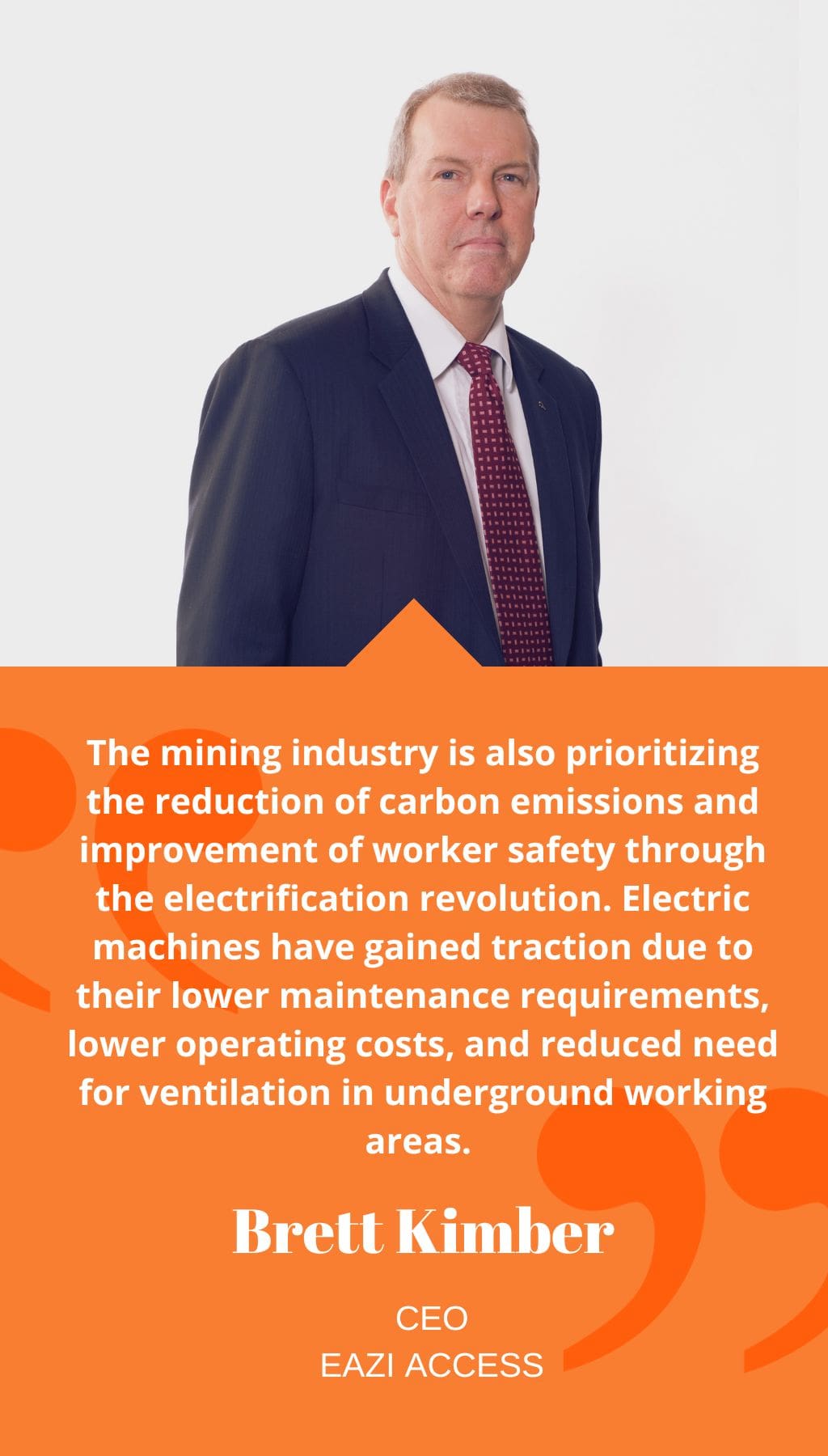
- South Africa | 25 August 2021

Can you give an overview of Eazi Access and the company’s history in Southern Africa?
Certainly! Eazi Access was established in 2003 as an equipment rental business. Over the years, we have experienced significant growth and expanded our service offerings in both work-at-height and material-handling equipment. Today, we provide a comprehensive range of services, including equipment rental, sales, servicing, and training. Our operations extend across 25 sites in Southern Africa, and we have a presence in countries such as Mozambique, Namibia, Zambia, and Zimbabwe.
One of our notable achievements is the close collaboration we have fostered with key original equipment manufacturer (OEM) brands. We are honored to have been appointed as the exclusive distributor of Linde Material Handling in South Africa. Additionally, we are the sole distributor of JLG, a renowned brand known for manufacturing high-quality work-at-height equipment. More recently, we have invested a significant portion of our capital expenditure into our OEM brand, Magni. The Magni Telehandler has proven to be a valuable equipment solution for our mining and heavy industrial customers, with its versatility in various applications. Supplying innovative and safe solutions, particularly through the Magni range, has contributed to substantial revenue growth for us. We are proud to quantify the cost-saving and time-saving potential our solutions offer, providing invaluable benefits to our customers.
How is Eazi Access capitalizing on the trends of automation and decarbonization?
At Eazi Access, we prioritize productivity and safety in every solution we design. We ensure that our operators receive comprehensive training and instruction with a strong emphasis on safety protocols.
Recently, we introduced a digital fleet management offering called Linde Connect, which falls under our Linde Material Handling OEM brand. Linde Connect is an intelligent fleet management solution that combines Linde software and hardware. Industrial trucks generate extensive data that can provide valuable insights into their condition and usage rates. With Linde Connect, this data is collected and made accessible to fleet operators, enabling smarter fleet management. Mine automation holds immense potential in Southern Africa and is increasingly seen as an essential element for future productivity and commercial sustainability among mining companies.
The mining industry is also prioritizing the reduction of carbon emissions and improvement of worker safety through the electrification revolution. Electric machines have gained traction due to their lower maintenance requirements, lower operating costs, and reduced need for ventilation in underground working areas. At Eazi Access, we offer lithium-ion battery solutions that contribute to a cleaner fleet. These batteries possess characteristics similar to those of internal combustion trucks but require no dedicated battery bay and offer quick charging capabilities.
How did the pandemic impact the industry and Eazi Access’ business?
The pandemic had a profound impact on both the industry and our business. To ensure a sustainable business, protect jobs, and prioritize the safety of our employees, we implemented stringent initiatives during these challenging times. The South African economy experienced significant disruptions due to the pandemic and subsequent lockdown restrictions. At the peak of the strictest lockdown measures, economic output dropped to R652 billion.
Since then, economic activity has gradually increased alongside the easing of lockdown restrictions. In the first quarter of 2021, real GDP rose to R761 billion, which is comparable to the levels seen in the first quarter of 2016 but represents a 2.7% decrease from the R782 billion recorded in Q1 of 2020.
The mining sector was also impacted by the lockdown restrictions, but we have witnessed a substantial increase in production, particularly in April 2021, with notable contributors being platinum group metals (PGMs), gold, manganese ore, and iron ore. Although the pandemic had economic repercussions for Eazi Access, the continued growth in the mining sector presents opportunities for our business. However, it’s important to acknowledge that the South African economy still operates within an uncertain environment, requiring resilience from businesses to navigate the short to medium-term challenges.
Additionally, there are promising prospects in Southern Africa, and governments in the region are keen to engage with foreign multinationals on mutually beneficial terms. In many countries, negotiated concessions and investment incentives outweigh the perceived negatives of equity sharing, suggesting that we may see the opening of additional mines in the future.
How would you describe the current state of mining activity across Southern Africa?
Southern Africa has always faced logistical, political, and skill-related challenges. However, the region is fortunate to possess abundant mineral resources. With the increasing global demand for minerals, particularly copper and other valuable resources, I believe that the mining industry across Southern Africa is poised for significant growth and development.














